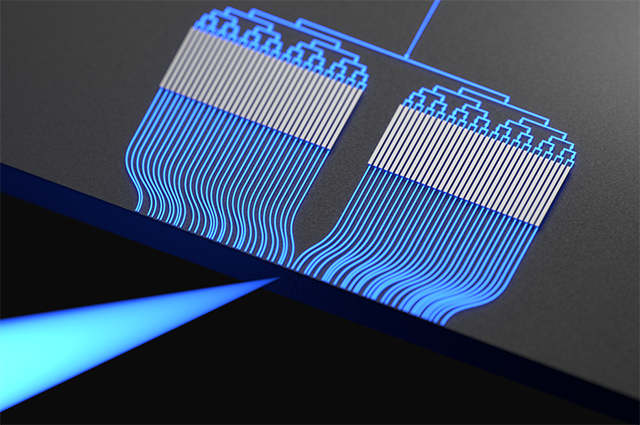Next-generation imaging technologies

Clare Boothe Luce Assistant Professor Aseema Mohanty recently received two grants through Scialog: Advancing BioImaging, a three-year initiative that aims to accelerate the development of the next generation of imaging technologies.
One grant, supported by Research Corporation for Science Advancement (RCSA), funds a proposal from Mohanty and co-PI Assistant Professor Sixian You of MIT. Mohanty and You propose developing the world’s smallest microscope using innovations in computational imaging and nanophotonics – a potential game-changer in applications that range from real-time cancer diagnosis for human patients to imaging neurons in freely-moving animals.
The other grant, supported by the Chan Zuckerberg Initiative (CZI), funds work from Mohanty and co-PI Assistant Professor Srigokul Upadhyayula of UC Berkeley. In that research, Mohanty and Upadhyayula propose a nanophotonic chip that can quickly reconfigure and generate optical lattices for ultra-thin light sheet based volumetric imaging of subcellular dynamics. Replacing complex multi-objective setups with nanophotonic chips would make the technology more widely accessible than it is now, offering the prospect of a compact, flexible, and low-cost implementation.
Each of the 23 awards conferred through Scialog: Advancing BioImaging–supported by co-funders RCSA, CZI, and the Frederick Gardner Cottrell Foundation (FGCF)–are for $50,000 in direct costs for projects led by early-career researchers from institutions across the U.S. and Canada. Scialog is short for “science + dialog.” Each multi-year Scialog initiative engages a diverse cohort of early-career scientists to identify challenges and opportunities in an area of global significance.
Mohanty joined the Tufts Department of Electrical and Computer Engineering in 2020. She researches the use of nanophotonics and engineered light-matter interactions to create miniaturized high performance optical circuits to control, shape, and sense light.
Department:
Electrical and Computer Engineering